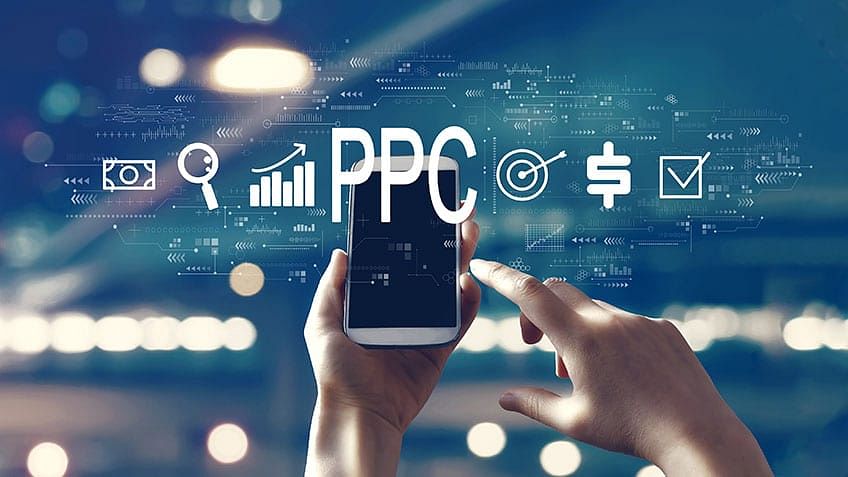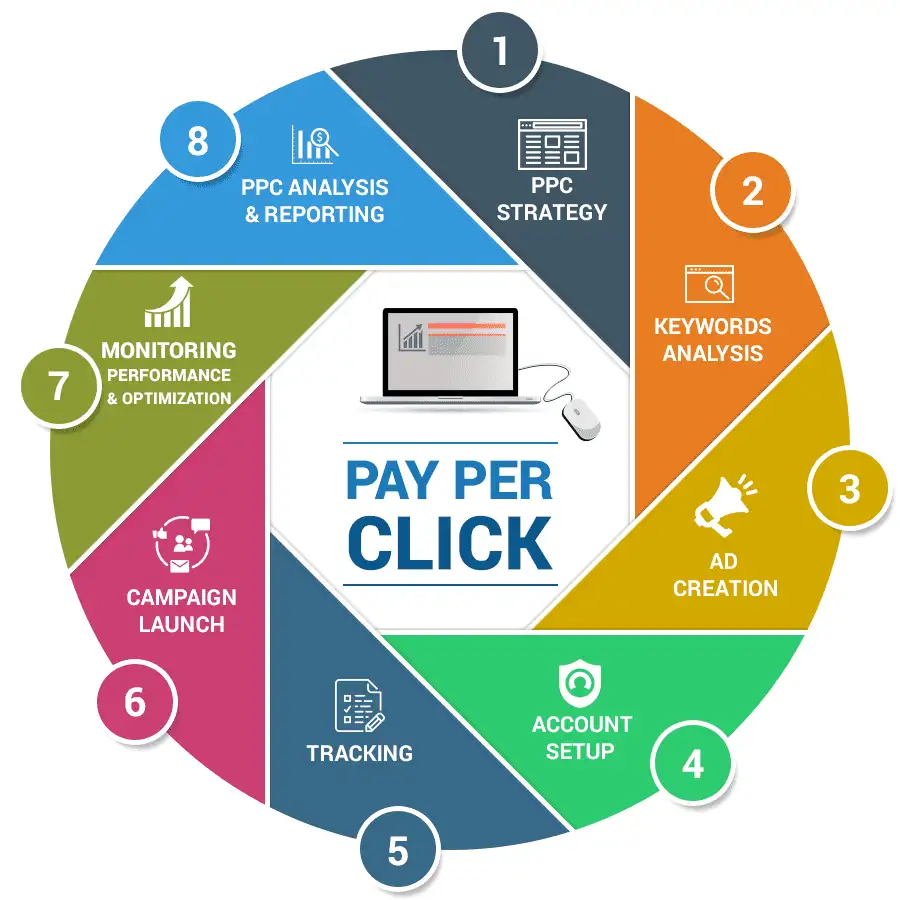
Internet advertising
Pay-per-click (PPC) is an Internet advertising model used to drive traffic to websites, in which an advertiser pays a publisher (typically a search engine, website owner, or advertising network). websites) when the ad is clicked.

Pay per click is typically associated with top-tier search engines (such as Google Ads, Amazon Advertising, and Microsoft Advertising, formerly Bing Ads). On search engines, advertisers typically bid on keyword phrases relevant to their target market and pay when ads are clicked (text-based search ads or shopping ads that are a combination of images and text). In contrast, content sites typically charge a flat price per click rather than using a bidding system. PPC display ads, also known as banner ads, are displayed on websites with related content that have agreed to display ads and are typically not pay-per-click advertising, but rather typically charge a cost per thousand impressions. (CPM). Social networks such as Facebook, Instagram, LinkedIn, Reddit, Pinterest, TikTok and Twitter have also adopted pay-per-click as one of their advertising models.
Importance of PPC:
In 2022, PPC generated an average of $2 for every $1 spent, with an average cost per click (CPC) of $1.16. And while social media remains a popular place to advertise, 40% of ad spend in 2020 was spent on search (73% of that figure went to Google).
- Quick Results: PPC advertising can drive traffic to a website almost immediately, while SEO can take a while to show results. Platforms typically approve ads the same day, providing maximum exposure almost immediately.
- Reach your target audience: PPC advertising allows marketers to target specific demographics, interests, and locations, helping to reach the right audience.
- Measurable: PPC advertising provides measurable results. It allows marketers to track conversions, return on investment (ROI), and other key performance indicators (KPIs).
- Cost-effective: PPC advertising can be more cost-effective than traditional advertising methods such as television or print ads, as marketers only pay when a user clicks on their ad and can set a budget for their campaign.
- Branding: PPC advertising can help increase brand awareness. Even if users don’t click on the ad, they may still see it and remember the brand.
- Track your goals: Tools like Google Analytics can help you track your goals. See how your ads are performing in real time and decide what needs to be done to achieve your goals more efficiently.
How does PPC work..?
PPC advertising works by allowing advertisers to bid on specific keywords or phrases for which they want their ads to appear in search engine results.
The search engine will then use a complex algorithm to determine which ads to show and in what order. The algorithm takes into account factors such as:

- Advertiser bid amount
- Relevance of the ad for the keyword.
- Ad quality
- PPC strategy and campaign planning
- Top PPC Platforms
This form of advertising can also be done through social media platforms, such as Facebook and Instagram.
Benefits of using PPC:
PPC has many advantages that will benefit your business, including the following:
- Optimized PPC is profitable
- Your ad will show on the first page of results when someone searches for a related term.
- More brand exposure and visibility as targeted traffic heads to your site.
- You can run multiple ad campaigns for each keyword.
- It results in higher click-through rates (CTR), more conversions, and higher sales revenue.
- Provides instant traffic

Models of PPC:
There are two type of PPC models,
1. Flat rate model
In the flat-rate pay-per-click model, an advertiser pays the publisher a flat fee for each click. Publishers usually maintain a list of different PPC rates that apply to different areas of their website. Please note that publishers are generally open to negotiations on price. A publisher will most likely reduce the fixed price if an advertiser offers a long-term or high-value contract.

2. Offer-based model
In the bid-based model, each advertiser bids a maximum amount of money they are willing to pay for an advertisement. A publisher then runs an auction using automated tools. An auction is held every time a visitor activates the ad.
Problems:
One of the biggest challenges with PPC advertising is cost. Since you pay per click on your ad, the cost can add up quickly, especially if you have a high volume of clicks. This can make it difficult for small businesses with limited budgets to compete with larger companies.

Solution:
PPC advertising works by allowing advertisers to bid on specific keywords or phrases for which they want their ads to appear in search engine results. When a user searches for one of those keywords or phrases, the advertiser’s ad will appear among the first results.
References:
- https://searchengineland.com/guide/what-is-paid-search
- https://www.wordstream.com/pay-per-click-advertising
- https://www.bidnamic.com/resources/what-is-ppc-in-digital-marketing
- https://corporatefinanceinstitute.com/resources/valuation/pay-per-click-ppc/
- https://en.wikipedia.org/wiki/Pay-per-click
Leave a Reply